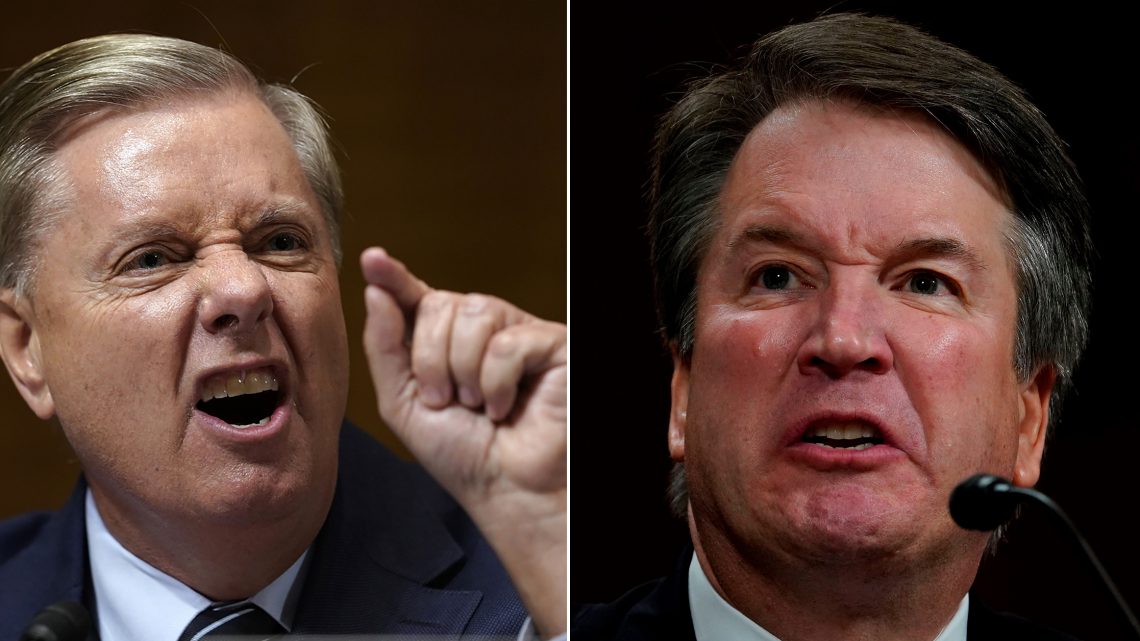
Kavanaugh’s Confirmation Would Epitomize America’s Ugly Political Future
September 27, 2018As America watched the testimony of Supreme Court nominee Brett Kavanaugh and Christine Blasey Ford, the woman who says he sexually assaulted her when they were in high school, it became clear that Ford's claims would not be debunked and Kavanaugh would not admit any wrongdoing. His fiery denial may have been a partisan rant, but it seem to ease the concerns of many Republicans. That sets us up for the worst outcome possible at the conclusion of this process: a party-line vote confirming Kavanaugh even though the public is increasingly convinced he engaged in some kind of sexual misconduct and lied about it.
When Donald Trump nominated Kavanaugh, polls showed that Americans tended to support him, but those numbers have dropped, especially, as one poll found, among Republican women (though a majority of GOP women still back Kavanaugh). Though there is a lot of uncertainty among Americans about whether the federal judge is telling the truth, more believe Ford than believe him, according to a recent NPR/PBS Newshour/Morning Consult poll, and more registered voters said they were likely to cast ballots for politicians who opposed Kavanaugh.
Voters do not get a say on Supreme Court nominations, of course, and the Senate is notoriously unrepresentative of the country as a whole in a way that tilts toward rural states and Republicans. Unless Susan Collins and Lisa Murkowski—the two nominal GOP swing votes in the Senate—vote against him, Kavanaugh is likely to be confirmed. Kavanaugh, who has spent his entire professional life in the conservative movement, will then continue to be an aggressive right-wing partisan and likely help issue rulings that strike down regulations, limit the ability of employees to protect themselves from abuses by bosses, and—perhaps worst of all given the allegations about how he treats women—severely limit women's access to abortions.
This partisanship is not new but it is worth pausing on, especially in the wake of Kavanaugh's statement that the assault allegation was a "new tactic" Democrats were "lying in wait" with, and Senator Lindsey Graham's tirade about how the hearing was "the most unethical sham since I've been in politics." Kavanaugh is the unpopular nominee of an unpopular president who leads a party that controls the government despite earning fewer votes than the opposition. His lifetime appointment to the Supreme Court will represent a victory for the conservative movement, but it won't represent where the country is as a whole. If he helps overturn Roe v. Wade—an outcome many are anticipating and dreading—it will be against the wishes of a vast majority of Americans.
Trump and the Republicans could have nominated a less ideological judge. They could have halted the nomination process once Ford's allegations emerged, if for no other reason than that those allegations were sure to divide and inflame the country further. Looking back, Republicans could have refrained from blocking Barack Obama's nomination of Merrick Garland, which remains a shocking exercise in raw political power. Instead, they've doubled down on partisan aggression at every opportunity, and surely won't change that—while talking to reporters Thursday, Graham hinted Republicans might as well falsely accuse Democrats' future court nominees' of sexual assault.
Garland, remember, was a moderate pick on Obama's part—he was so universally admired that sitting Republican Senator Orrin Hatch called him a “consensus nominee” in 2010. That sort of attempt to reach common ground is dead. If anyone believes that the Supreme Court exists to interpret laws fairly, they've been reading too many civics textbooks and not enough news. The Supreme Court is the premier arena for ruthless partisan politics, and the GOP has defined the rules. An opponent's nominee must be rejected no matter how qualified, while your own nominee must be defended vigorously no matter what. If, as a result, the public then views the Supreme Court as less legitimate, well, who cares what the public thinks? The Kavanaugh hearings were painful to watch. But they probably represent the future.
Follow Harry Cheadle on Twitter.


